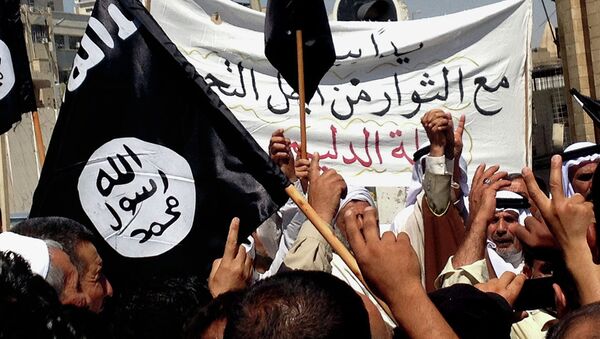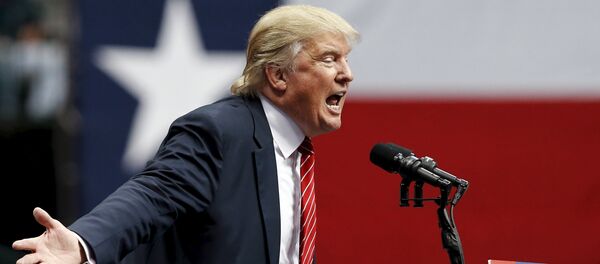MOSCOW (Sputnik) — The Russian Foreign Ministry's official said that ISIL is outlined in the UN Security Council's sanctions list as one of the names of al-Qaeda in Iraq, while it is no secret that the Islamic State is an independent structure acting as a rival of al-Qaeda.
"It is no secret that the Islamic State is an independent structure, acting, to a certain extent, as a rival of al-Qaeda. Meanwhile, it is outlined in the UN Security Council's sanctions list as one of the names of al-Qaeda in Iraq. We have proposed to include the Islamic State as an independent organization, but our proposals are being blocked by Western members of the Security Council, especially the United States, under various pretexts," Rogachev told RIA Novosti.
Rogachev argued the United States and its allies had placed ISIL as part of al-Qaeda in Iraq in the list to conceal the "sloppy cultivation" of opposition groups to the Syrian government by the West that led to the rise of the Islamic State.
"It is a clearly politically calculated position that has almost nothing to do with combatting terrorism. That is why we persistently raise this question and will continue raising it," he stressed.
ISIL originated as Jama'at al-Tawhid wal-Jihad in 1999, and renamed itself al-Qaeda in Iraq after allying itself with Osama bin Laden in 2004. After a long power struggle, al-Qaeda cut all ties with the Islamic State in early 2014.
The Islamic State has taken over large areas of Syria and Iraq, maintaining practices seen as more fundamentalist than al-Qaeda. Its murders, beheadings, mistreatment of minorities and desecration of historic monuments over the past years have largely overshadowed al-Qaeda in the media landscape.
Russia is currently discussing individual aspects in proposals with its foreign partners to create a greater coalition in the fight against the radical Islamic State that should use force under permission from the UN Security Council and the government of the country that is affected, Rogachev said.
"We are naturally ‘digesting’ individual aspects of our proposals with our foreign partners. A coalition’s activities must act on the UN Security Council’s permission to use military force, as well as permission from the governments of those countries that are affected by these activities. An anti-terrorist coalition must integrate all of the interested governments in order to be effective," Ilya Rogachev said.


